

Storm To Perform: The 4 Stages Of Team Productivity. How do great teams make history?

Looking at the track records of great teams like the original Apple I team, the 1969 Miracle Mets, and NASA’s Space Task Group (the true fabric of that teamwork being more recently revealed thanks to Hidden Figures), it’s obvious they went above and beyond the average achievement level typical of a group working together. But how did they get there? According to group development theory, team dynamics play a big part in pushing people past average and into exceptional success. The goal of maximum productivity is why one theory in particular has become a core teaching in the field of project management—it lays out some pretty straightforward reasons why some teams get to their productivity peak, and some don't.
Borrow insights from this teamwork theory, and you might finally understand how your team can push past average and unlock a higher level of productivity together. Group Development Theory Dr. Stage 1: Forming A Real Live Team Never assume. Les 5 clés des équipes qui réussissent. Recevez un extrait de notre guide de survie aux réunions pour transformer vos réunions en moments funs et productifs !

Aujourd’hui, j’aimerais partager avec vous une découverte pour le moins étonnante. Comme vous l’avez compris nous sommes passionnés par le collaboratif et le travail en équipe dont nous parlons régulièrement sur ce blog. Et bien nous ne sommes pas les seuls. Figurez vous que le très sérieux MIT s’y intéresse également de près comme le démontre les recherche d’Alex Pentland.
The New Science of Building Great Teams. Artwork: Andy Gilmore, Chromatic, 2010, digital drawing If you were looking for teams to rig for success, a call center would be a good place to start.
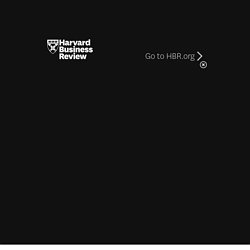
The skills required for call center work are easy to identify and hire for. The tasks involved are clear-cut and easy to monitor. Just about every aspect of team performance is easy to measure: number of issues resolved, customer satisfaction, average handling time (AHT, the golden standard of call center efficiency). And the list goes on. Why, then, did the manager at a major bank’s call center have such trouble figuring out why some of his teams got excellent results, while other, seemingly similar, teams struggled?
After years of intensive analysis, Google discovers the key to good teamwork is being nice — Quartz. When Fox News’ Chris Wallace asked Donald Trump about his thoughts on climate change, the president-elect responded, “Nobody really knows.

Look, I’m somebody that gets it, and nobody really knows. Le secret des équipes performantes. Recevez un extrait de notre guide de survie aux réunions pour transformer vos réunions en moments funs et productifs !
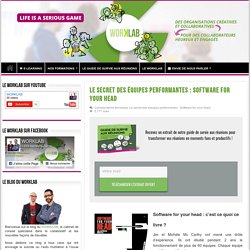
Jim et Michèle Mc Carthy ont mené une drôle d’expérience. Le secret des équipes les plus productives est simple: la gentillesse. En 2012, Google a lancé le Projet Aristote, une étude dont le but était d'éclaircir un grand mystère managérial: qu'est-ce qui fait qu'une équipe de travail est efficace?

Un article du New York Times Magazine raconte comment des statisticiens, chercheurs, sociologues, psychologues organisationnels et ingénieurs de Google ont analysé des centaines de groupes de travail pour essayer de trouver les ingrédients du succès. Interactions between members. 3 characteristics smart team. Social sensitivity mind reading. Isegoria. Re:Work - The five keys to a successful Google team. La gentillesse comme facteur clé des équipes efficaces selon Google. La gentillesse comme premier facteur de réussite des équipes efficaces Le titre du livre de Franck Martin "Le pouvoir des gentils" publié en 2014 chez InterEdition est explicite : la gentillesse devient une valeur sure du fonctionnement efficace des équipes.
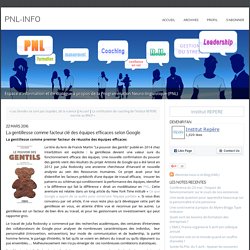
Une nouvelle confirmation du pouvoir des gentils vient des résultats du projet Aristote de Google qui a été lancé en 2012 par Julia Rodovsky une ancienne chercheuse d’Harvard et nouvelle analyste au sein des Ressources Humaines. Ce projet avait pour but d’identifier les facteurs prédictifs d’une équipe de travail efficace, trouver les patterns ou schémas qui conditionnent la performance des équipes, identifier « la différence qui fait la différence » dirait un modélisateur en PNL. Cette aventure est relatée dans un long article du New York Time intitulé « Ce que Google a appris de sa quête pour construire l’équipe parfaite ».
Les clés des équipes efficaces sont les suivants, par ordre l’importance. Why Some Teams Are Smarter Than Others. Individual intelligence, as psychologists measure it, is defined by its generality: People with good vocabularies, for instance, also tend to have good math skills, even though we often think of those abilities as distinct.
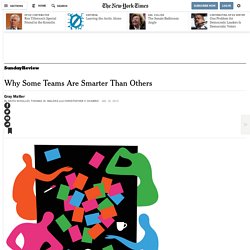
The results of our studies showed that this same kind of general intelligence also exists for teams. On average, the groups that did well on one task did well on the others, too. In other words, some teams were simply smarter than others. Les 5 clés des équipes qui réussissent. Pourquoi certaines équipes sont-elles plus intelligentes que d’autres. Anita Wooley, spécialiste de l’étude des comportements de groupes, Thomas Malone, directeur du Centre pour l’intelligence collective du MIT et le psychologue Christopher Chabris, nous expliquent dans une tribune pour le New York Times ce qui fait la qualité d’un groupe sur un autre.

Pour cela, ils convoquent une étude de 2010 menée par Alex Pentland du MIT (cf. « Big Data : vers l’ingénierie sociale ? ») qui montrait que certaines équipes réussissaient mieux que d’autres, même si elles n’étaient pas spécialistes des sujets qu’elles devaient traiter. La qualité d’une équipe ne repose donc pas tant sur l’intelligence de chacun de ses membres que sur sa capacité à faire équipe (enfin, pour autant que la tâche à réaliser nécessite une collaboration profonde pas seulement de résoudre un problème précis : si vous demandez à un groupe de résoudre un calcul différentiel, il vaudrait mieux qu’il y a ait des mathématiciens autour de la table !).
Hubert Guillaud Signaler ce contenu comme inapproprié. 13 Ways to Encourage Conflict at Work. Have you sabotaged your team’s results by playing peace-keeper?
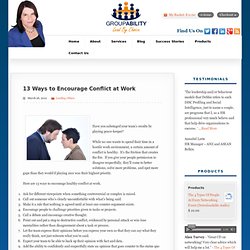
While no one wants to spend their time in a hostile work environment, a certain amount of conflict is healthy. It’s the friction that creates the fire. If you give your people permission to disagree respectfully, they’ll come to better solutions, solve more problems, and spot more gaps than they would if playing nice was their highest priority. Here are 13 ways to encourage healthy conflict at work. All change involves some pain. What Google Learned From Its Quest to Build the Perfect Team. So Rozovsky started looking for other groups she could join. A classmate mentioned that some students were putting together teams for ‘‘case competitions,’’ contests in which participants proposed solutions to real-world business problems that were evaluated by judges, who awarded trophies and cash.
The competitions were voluntary, but the work wasn’t all that different from what Rozovsky did with her study group: conducting lots of research and financial analyses, writing reports and giving presentations. The members of her case-competition team had a variety of professional experiences: Army officer, researcher at a think tank, director of a health-education nonprofit organization and consultant to a refugee program. Despite their disparate backgrounds, however, everyone clicked. Google Finds That Successful Teams Are About Norms Not Just Smarts.
Which Google employees has made the biggest impact to the company over the past decade? Besides the familiar choices of Larry and Sundar, I’d nominate Google’s outgoing CPO Laszlo Bock. Under Laszlo’s direction Google’s hiring and management assumptions have been challenged by real data, resulting in transformative shifts such as *not* assuming college test scores are a predictor of success as a Googler.
Another important question was “What makes a team successful (or not)?” ✔ Effective Communication in a Team - part 1: my 5 general rules. Note: This article is based on my Editor’s note from the 11th issue of the Polish edition of the Productive! Magazine. Being extremely happy with the changes that we've implemented by the end of last year in the Nozbe team, I often think that there are still things that can be improved. For example... communication.
Between individual departments (e.g. customer service - programmers), between heads of departments and, of course, between me and each of my employees. Especially when you work remotely like we do, good communication is key. ✔ Effective Communication in a Team [part 2]: my 7 rules for improving interpersonal relations. The secret ingredient that makes some teams better than others. Running a software company in Boston, I recognized — and my board told me — that we needed to reposition the business. Our product was too bland, too generic to stimulate excitement or loyalty. I needed a team to help me, and I ended up working through the problem with a motley crew: a young web developer, a seasoned and eccentric media executive, a visual artist, and me. We spent a week in the private room of a burger joint, exploring options, rejecting easy answers, pushing one another to find something none of us could see. Re:Work - Guide: Understand team effectiveness.
Much of the work done at Google, and in many organizations, is done collaboratively by teams. The team is the molecular unit where real production happens, where innovative ideas are conceived and tested, and where employees experience most of their work. But it’s also where interpersonal issues, ill-suited skill sets, and unclear group goals can hinder productivity and cause friction.